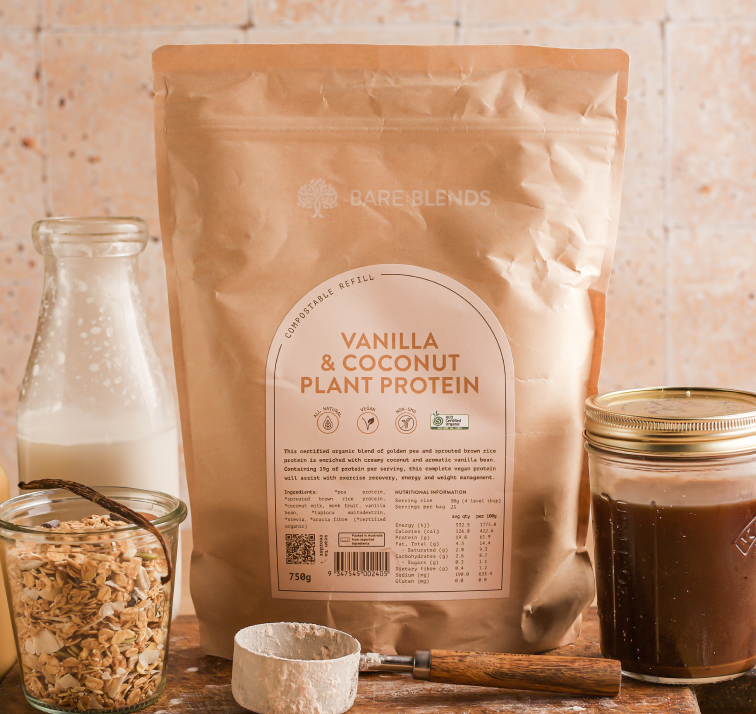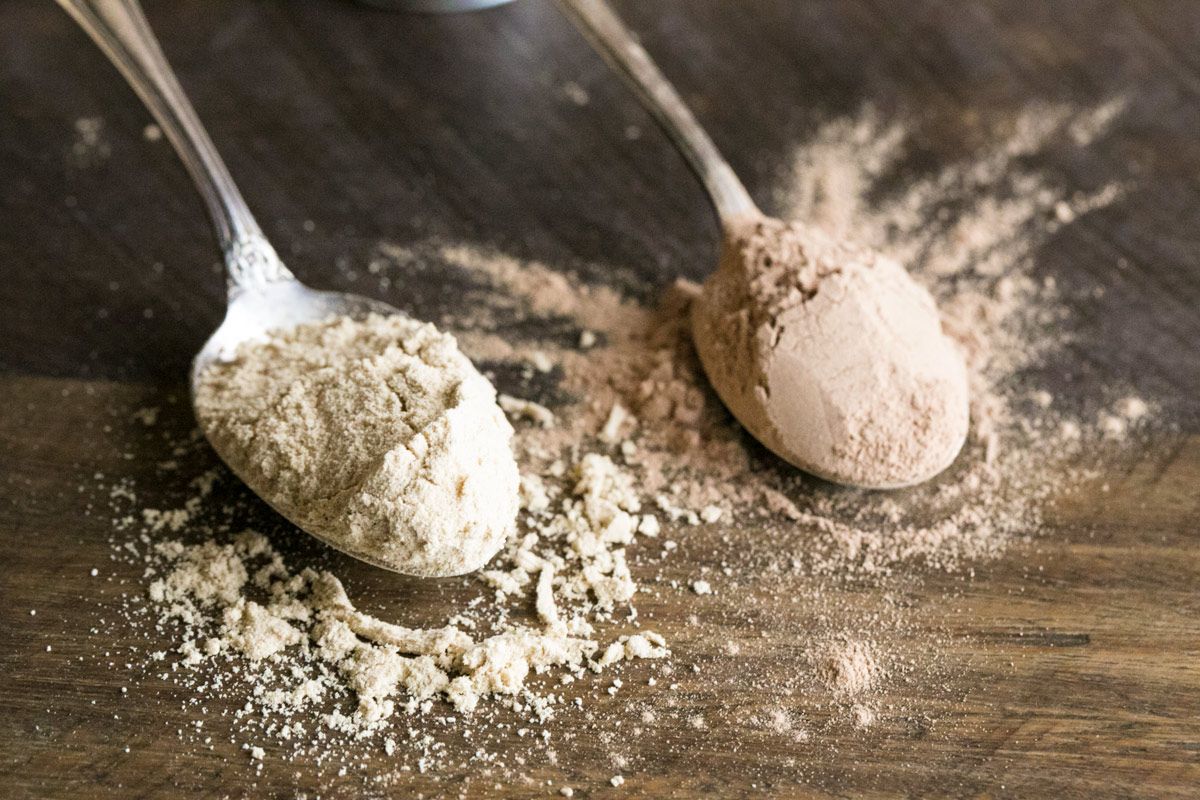Dairy Free Protein Powder
Why choose a dairy free protein?
For vegetarians and vegans who may not have as high a protein intake as others, plant-based proteins could help to improve your overall energy levels, health and lifestyle.
I have lactose sensitivity
Lactose intolerance is a common ailment, and it means that the sugars found in dairy products (mostly milk products) can’t be digested properly within the digestive tract, causing bloating, abdominal pain, diarrhea and other symptoms. Although whey protein only contains a very small amount of lactose (and whey protein isolate is tolerated by many people with lactose intolerance), those with lactose sensitivities may wish to steer clear whey in favour of a dairy-free protein.
I am vegan
If you’re vegan or leaning towards a mostly plant-based diet, then you’ll need to find a dairy free protein that suits you. Although enough protein can be obtained from plant-based diets, it’s important to be aware than vegan and vegetarians may need to eat more protein than meat-eaters do, because plant-based protein has lower digestibility than animal protein. Therefore, finding a plant-based protein powder that’s high in protein and has good digestibility is important.
I just prefer plant proteins over dairy proteins
If you prefer plant-based protein over whey protein, then that’s great. Plant protein powders are an excellent source of nutrition and bioavailable protein. They do carry a more earthy flavour and texture to whey protein, which is preferable for some.

The best lactose free alternatives to whey protein
Pea and rice proteins, for example, are excellent dairy-free alternatives to whey protein. This is because they have a very low potential for allergic response, they’re easy on the digestive system, and when combined, contain an impressive amino acid profile. However, they are not your only option.
Pea Protein
Pea protein is a protein source that’s very easily digestible and hypoallergenic. Pea protein contains all nine of the essential amino acids, and is also beneficial for heart health and kidney function. Pea protein is very soluble and blends well with liquids. It also has a less gritty or chalky texture than other plant-based protein powders.
Rice Protein
Like pea protein, rice protein powder is particularly brown rice powder, is a complete source of protein which is easily digestible and has very low potential for allergic response. We recommend looking for a certified organic source. Brown rice protein is easily absorbed, is very soluble, and mixes well with other flavours.
Hemp Protein
Hemp seeds contain protein, magnesium, iron, and both omega-3 and omega-6 fatty acids. They’re powerful little seeds with neuroprotective and anti-inflammatory benefits. Hemp protein also contains all 9 essential amino acids and very high digestibility.
Nut proteins
Nuts are a great source of both protein and healthy fats. Peanuts, for example, contain over 25g of protein per 100g. Nut protein powders are an even more concentrated source of protein. Almond protein powder is starting to hit the market (with vague reports saying that it may contain up to 20g of protein per 40g serving), and we’re sure we’ll see an increase in the popularity of nut protein powders over the next few years.

Plant protein blends
When choosing a dairy-free protein powder to assist with weight management, muscle building and repair, you must consider the amount of protein per serving, the amino acids that it contains, and the bioavailability of that protein source. Choosing a protein powder that has all 9 essential amino acids is important for fueling and rebuilding muscle fibres after exercise.
Why pea and rice protein?
Both pea and rice proteins are celebrated for being complete protein sources, meaning that they contain all 9 essential amino acids. But having pea protein and rice protein together is much better than having one by itself. As pea protein is low in the amino acids cysteine and methionine, but high in lysine, it pairs perfectly with rice protein which is low in lysine, but high in cysteine and methionine. Together, they offer an optimal amino acid profile which is superior to any single plant protein source.
Bare Blends Organic Plant Protein Powders
Bare Blends’ , and are made with a certified organic blend of pea and sprouted brown rice proteins that have been processed using low-temperature techniques, resulting in the highest possible nutrient density of any plant-based protein powder. They’re also made with the optimal ratio of pea and rice protein, ensuring a superior amino acid profile.
Our certified organic pea protein is a nutrient-dense, easily digestible powder. This alkalising ingredient will rebuild your body with it's high-quality plant-based protein. As well as this, our certified organic brown rice protein is soaked, sprouted and then activated, making it one of the most bioavailable plant-based proteins available.
Bare Blends vegan protein powder benefits include:
- Australian Certified Organic
- Absolutely No Fillers, Artificial Flavours Or Sweeteners
- Over 20g Of Plant-Based Protein Per Serve
- Assist Lean Muscle Development
- Improved Recovery After Exercise
- Flavoured With Only Real Organic Food
- Help With Weight Loss And Weight Management
- Lactose Free And Dairy Free
- Free From Gluten, Soy And Sugar

